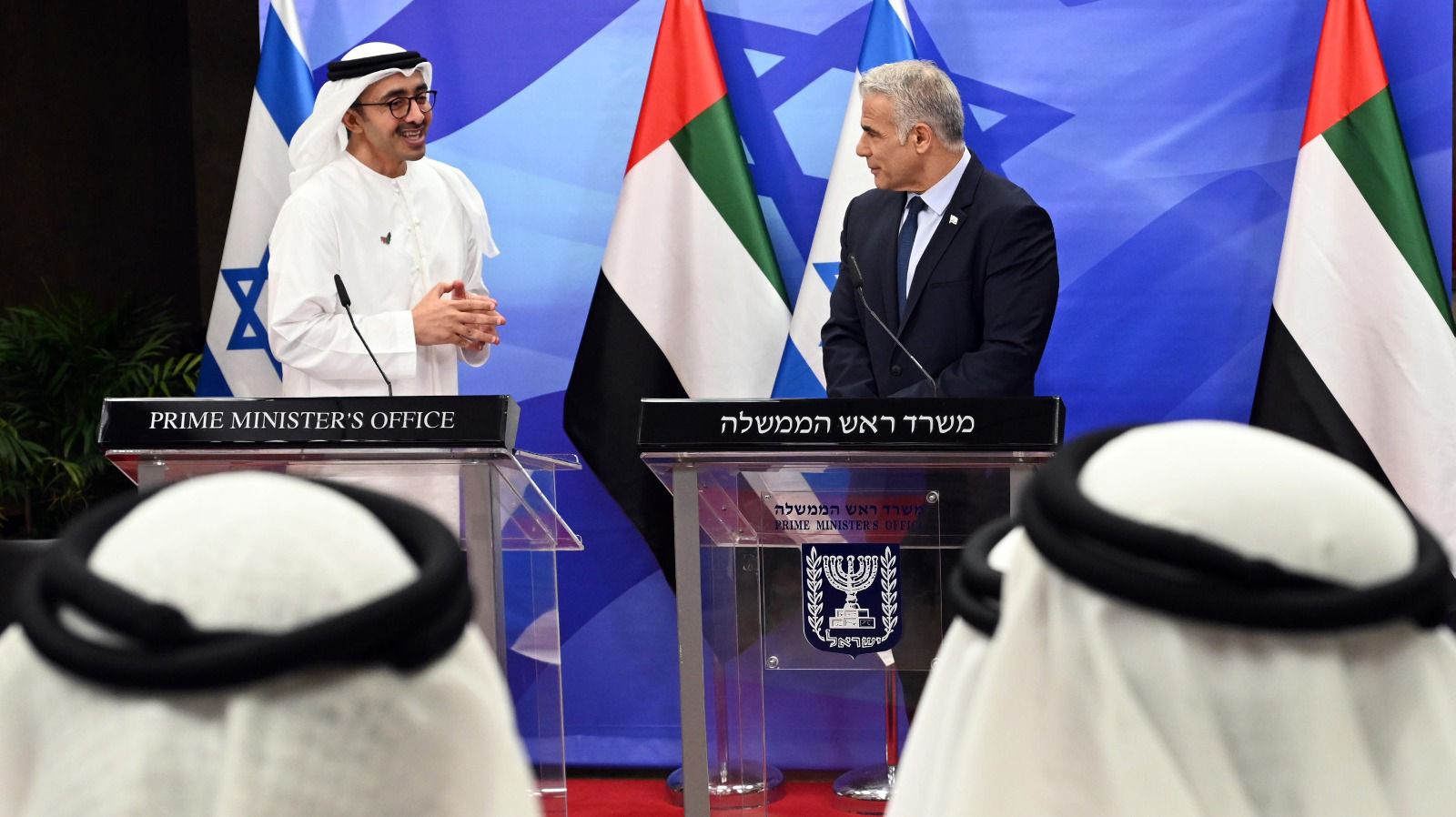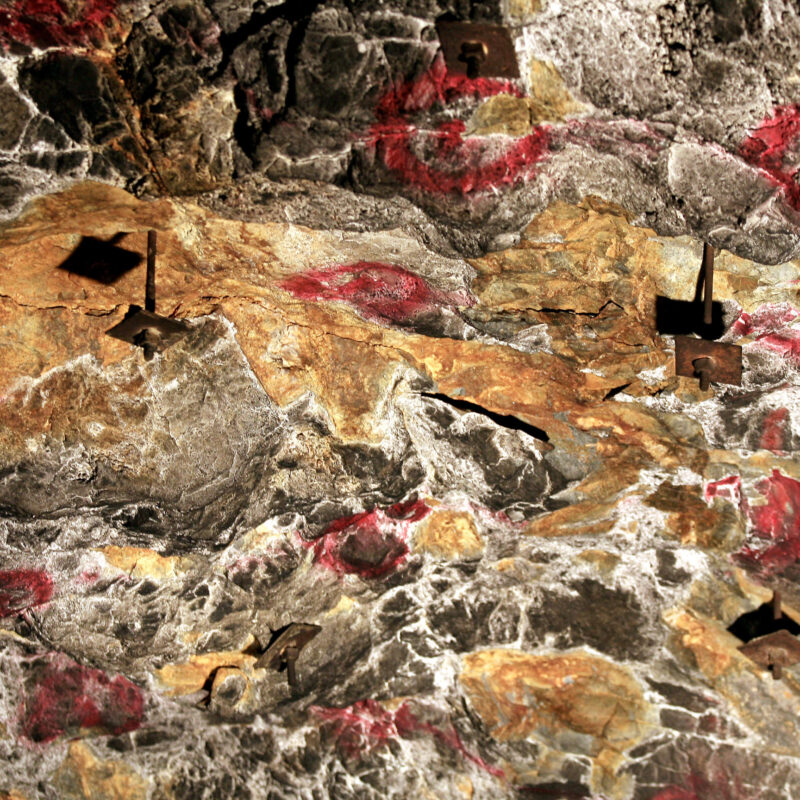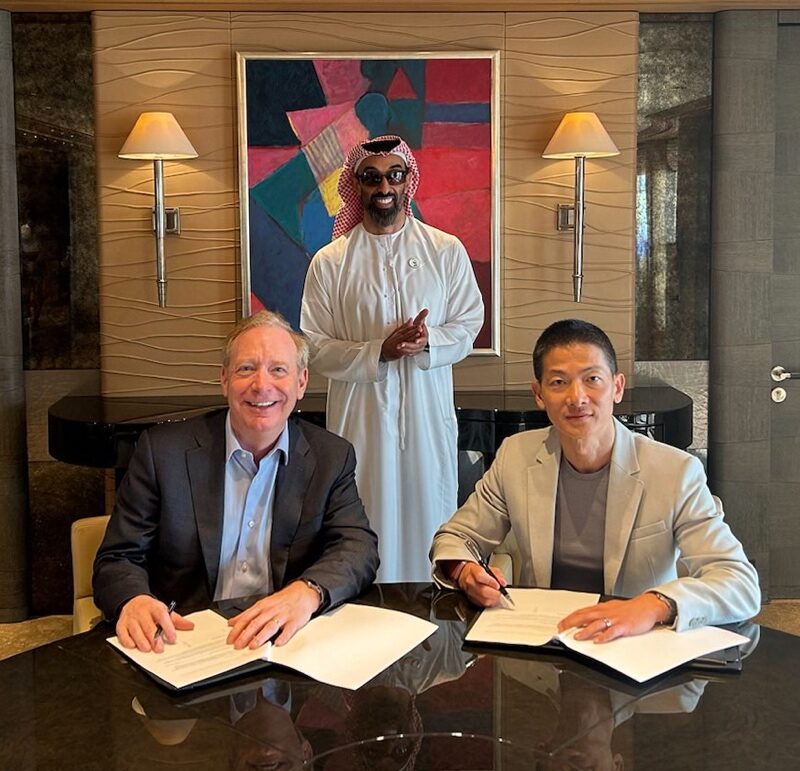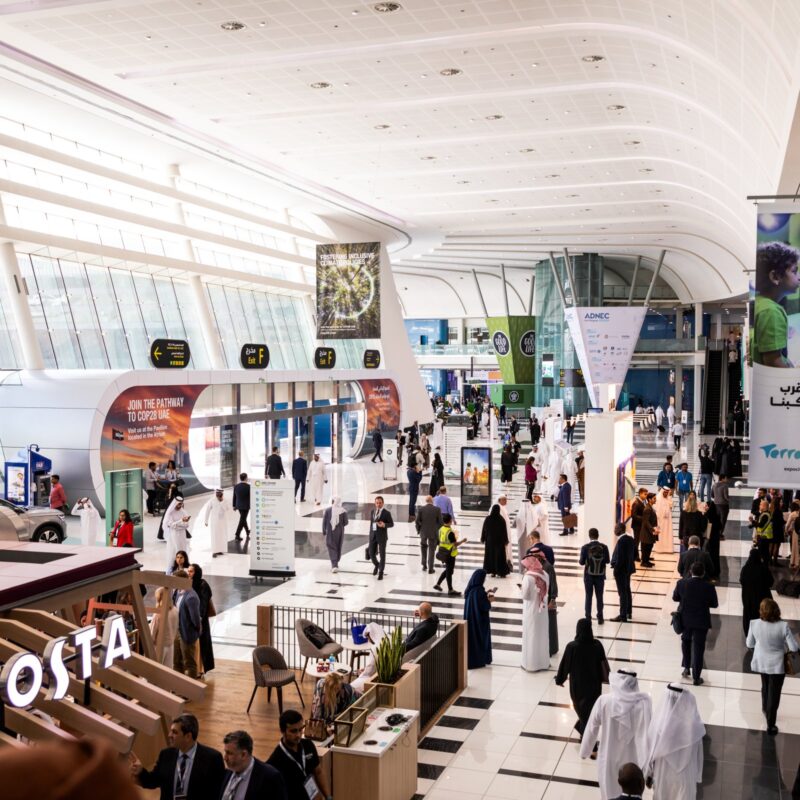
Israel Government Press Office
UAE foreign minister marks Abraham Accords anniversary in Israel
Lapid calls Foreign Minister Abdullah bin Zayed ‘a dear friend with whom I can talk about everything’; Bin Zayed lays wreath at Yad Vashem
JERUSALEM – Israel and the United Arab Emirates celebrated the second anniversary of the Abraham Accords with a series of diplomatic meetings, hailing the rapid development of business and security ties since the White House signing of the normalization agreements.
At the center of last week’s events was UAE Foreign Minister Abdullah bin Zayed al-Nahyan, who met Sept. 15 with Israeli Prime Minister Yair Lapid and President Isaac Herzog on his first visit to Jerusalem, later going to the Yad Vashem, the World Holocaust Remembrance Center, to lay a wreath. In the evening, the UAE’s embassy in Israel hosted a celebratory dinner in the seaside city of Herzliya.
“What began as a wish and as an aspiration uniting us all is now an established fact,” Herzog said during the reception at the Ritz-Carlton Hotel, according to a statement from his office. “The Abraham Accords transformed, and continue to transform, our region beyond recognition.”
Bin Zayed said it was an honor to be in Israel, telling Herzog earlier in the day at the President’s Residence in Jerusalem, “This is historic, but I think in many ways this is a relationship which very few thought that in two years it would be as successful.”
Lapid greeted Bin Zayed at his office in Jerusalem, saying the trip “will advance the regional architecture we have been building this past year in the Middle East.”
The two leaders discussed efforts to strengthen ties between their countries, focusing on economic development and cooperation in the fields of agriculture, energy, water and food security, according to a statement.
Lapid described Bin Zayed’s trip to Israel as “a visit of a close and dear friend, with whom I can talk about everything.”
The UAE foreign minister also stayed through the weekend and held low-key visits on Sunday to the Technion – Israel Institute of Technology in Haifa, the Tel Aviv Museum of Art and the Peres Center for Peace and Innovation.
The UAE and Israel signed a free trade agreement in May that officials said would generate $10 billion a year in bilateral trade within five years. At least 450,000 Israelis have traveled to the UAE since the Abraham Accords were signed, according to Israel’s ambassador to the UAE, Amir Hayek.
Traveling to Israel with the foreign minister were Reem Ebrahim Al Hashimy, the UAE minister of state for international cooperation; Noura bint Mohammed Al Kaabi, minister of culture and youth; and other senior officials. They were joined during the meeting with Lapid by a group of Israeli government officials including Energy Minister Karine Elharrar, National Security Adviser Eyal Hulata and the prime minister’s military secretary Maj.-Gen. Avi Gil.
Lapid and bin Zayed forged a friendship when they worked closely together on creating the Negev Forum before Lapid became prime minister in June – he previously served as Israel’s foreign minister. The event last March brought together foreign ministers from Israel, the UAE, Bahrain, Egypt, Morocco and the United States.
On Sunday, Lapid’s cabinet approved funding to extend the Negev Forum’s multilateral activities in the fields of food security and water, energy, tourism, health, education and tolerance, and regional security, according to a statement.
“These working groups will create economic and security links which, just a few years ago, we could not have even dreamed of,” Lapid said.
During his visit to Yad Vashem last week, Bin Zayed laid a wreath at the stark Hall of Remembrance: “I am here today to remind ourselves of the lessons that history teaches us and the great responsibility upon us to act with tolerance for building our community and society,” he wrote in the guestbook, according to the Times of Israel. “We must take the brave step of building a bridge of true peace for the coming generations.”
While at Herzog’s residence, Bin Zayed invited the Israeli president to attend the Abu Dhabi Space Dialogue conference in December, according to a UAE government statement. Later, Herzog announced that he plans in the next few months to visit Bahrain, the other Gulf state that signed the Abraham Accords on Sept. 15, 2020. Morocco and Sudan subsequently agreed to normalize relations with Israel.
“The Abraham Accords heralded the return of hope, of dramatic regional change, of a horizon of cooperation and prosperity, of a future that draws its power from the togetherness created in the present,” Herzog said in his dinner speech. “I hope that we shall see more and more groundbreaking accords, including with our close neighbors, the Palestinians, and that the historic process, gaining unimaginable momentum, of Israel’s integration into this region will continue, layer upon layer.”


